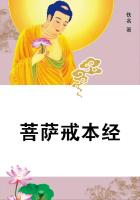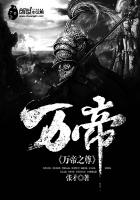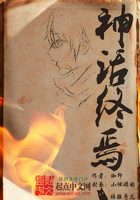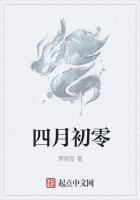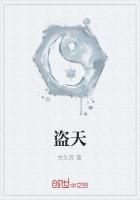The instinctive exclusion of all aversion, all hostility, all bounds and distances in feeling: the consequence of an extreme susceptibility to pain and irritation--so great that it senses all resistance, all compulsion to resistance, as unbearable anguish (--that is to say, as harmful, as prohibited by the instinct of self-preservation), and regards blessedness (joy) as possible only when it is no longer necessary to offer resistance to anybody or anything, however evil or dangerous--love, as the only, as the ultimate possibility of life. . .
These are the two physiological realities upon and out of which the doctrine of salvation has sprung. I call them a sublime super-development of hedonism upon a thoroughly unsalubrious soil. What stands most closely related to them, though with a large admixture of Greek vitality and nerve-force, is epicureanism, the theory of salvation of paganism. Epicurus was a typical decadent: I was the first to recognize him.--The fear of pain, even of infinitely slight pain--the end of this can be nothing save a religion of love . . . . 31. I have already given my answer to the problem. The prerequisite to it is the assumption that the type of the Saviour has reached us only in a greatly distorted form. This distortion is very probable: there are many reasons why a type of that sort should not be handed down in a pure form, complete and free of additions. The milieu in which this strange figure moved must have left marks upon him, and more must have been imprinted by the history, the destiny, of the early Christian communities;the latter indeed, must have embellished the type retrospectively with characters which can be understood only as serving the purposes of war and of propaganda. That strange and sickly world into which the Gospels lead us--a world apparently out of a Russian novel, in which the scum of society, nervous maladies and "childish" idiocy keep a tryst--must, in any case, have coarsened the type: the first disciples, in particular, must have been forced to translate an existence visible only in symbols and incomprehensibilities into their own crudity, in order to understand it at all--in their sight the type could take on reality only after it had been recast in a familiar mould.... The prophet, the messiah, the future judge, the teacher of morals, the worker of wonders, John the Baptist--all these merely presented chances to misunderstand it . . . . Finally, let us not underrate the proprium of all great, and especially all sectarian veneration: it tends to erase from the venerated objects all its original traits and idiosyncrasies, often so painfully strange--it does not even see them. It is greatly to be regretted that no Dostoyevsky lived in the neighbourhood of this most interesting decadent--I mean some one who would have felt the poignant charm of such a compound of the sublime, the morbid and the childish. In the last analysis, the type, as a type of the decadence, may actually have been peculiarly complex and contradictory: such a possibility is not to be lost sight of. Nevertheless, the probabilities seem to be against it, for in that case tradition would have been particularly accurate and objective, whereas we have reasons for assuming the contrary. Meanwhile, there is a contradiction between the peaceful preacher of the mount, the sea-shore and the fields, who appears like a new Buddha on a soil very unlike India's, and the aggressive fanatic, the mortal enemy of theologians and ecclesiastics, who stands glorified by Renan's malice as "le grand maitre en ironie." I myself haven't any doubt that the greater part of this venom (and no less of esprit) got itself into the concept of the Master only as a result of the excited nature of Christian propaganda: we all know the unscrupulousness of sectarians when they set out to turn their leader into an apologia for themselves.
When the early Christians had need of an adroit, contentious, pugnacious and maliciously subtle theologian to tackle other theologians, they created a "god" that met that need, just as they put into his mouth without hesitation certain ideas that were necessary to them but that were utterly at odds with the Gospels--"the second coming," "the last judgment," all sorts of expectations and promises, current at the time.-- 32. I can only repeat that I set myself against all efforts to intrude the fanatic into the figure of the Saviour: the very word imperieux, used by Renan, is alone enough to annul the type. What the "glad tidings"tell us is simply that there are no more contradictions; the kingdom of heaven belongs to children; the faith that is voiced here is no more an embattled faith--it is at hand, it has been from the beginning, it is a sort of recrudescent childishness of the spirit. The physiologists, at all events, are familiar with such a delayed and incomplete puberty in the living organism, the result of degeneration. A faith of this sort is not furious, it does not denounce, it does not defend itself: it does not come with "the sword"--it does not realize how it will one day set man against man. It does not manifest itself either by miracles, or by rewards and promises, or by "scriptures": it is itself, first and last, its own miracle, its own reward, its own promise, its own "kingdom of God."This faith does not formulate itself--it simply lives, and so guards itself against formulae. To be sure, the accident of environment, of educational background gives prominence to concepts of a certain sort: in primitive Christianity one finds only concepts of a Judaeo--Semitic character (--that of eating and drinking at the last supper belongs to this category--an idea which, like everything else Jewish, has been badly mauled by the church).

